MSG is an additive to food that has become a hot-button topic over the years, with a seemingly unfair emphasis on Chinese food’s utilization of MSG with their food. Avoiding it can prove to be tough because the truth is that most dishes will contain MSG.
MSG is found in so many different Chinese foods, so avoiding it can be a challenge. Foods with little to no MSD include chicken or beef with broccoli, grilled shrimp, and even everyone’s favorite dumplings.
So, what are some dishes that you can order without MSG or with low levels of MSG? That is a tricky question to answer, as just about every dish can be made with or without MSG as an ingredient. Take a look below at some options with low or no MSG, as well as some more information about what exactly is MSG. (25 best food to order from Chinese restaurant)
7 Foods That Contain the Least Amount of MSG
One tip to avoid foods with MSG is to try to steer clear of fried foods or foods that are heavily soy-based. While it is generally safe to eat, most restaurants will accommodate any allergies as well if you really need to avoid MSG.
#1. No or Low Soy Sauce
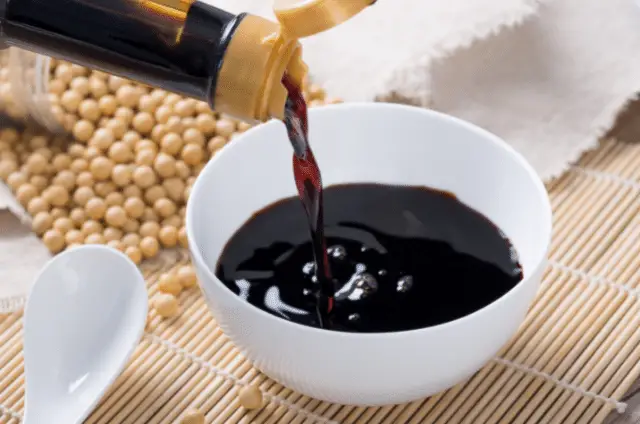
Sure, this is not a food option, but it is one way to avoid adding too much additional MSG to your meal. In Chinese restaurants, a lot of soy sauce can contain additional glutamate, and adding it to your meal will increase the total amount that you are consuming.
#2. Roasted Duck

Another great option for those who are looking for something to get that is not among the fried realm is Roasted Duck. This a flavorful, delicious entrée and avoids the frying process by being roasted. Be sure to confirm with the restaurant that they do not add MSG to this dish before cooking it.
#3. Grilled or Roasted Shrimp
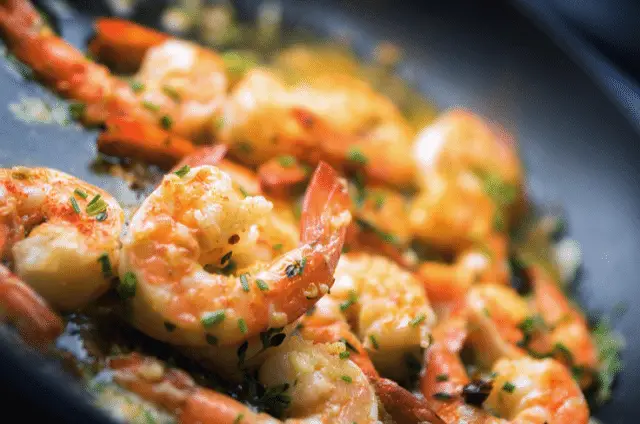
When taking a look at the menu, try to identify shrimp options that are grilled or roasted instead of fried. Avoiding that process can sometimes result in less MSG than their fried counterparts.
#4. Dumplings
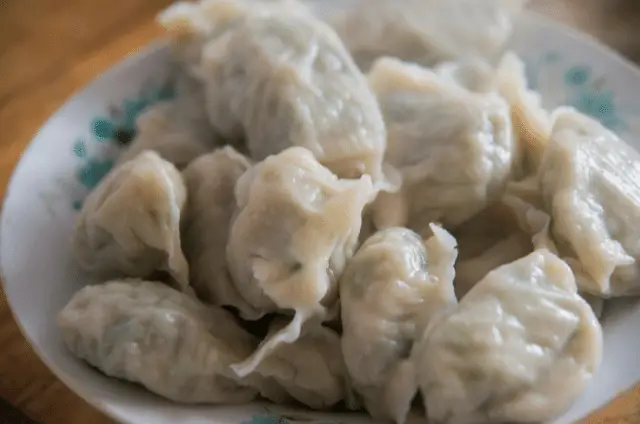
Dumplings offer a great option for a dish that is totally packed with flavor and has a lot of variety. There are many different types of dumplings with several different options for the meat and vegetables that are inside. These dumplings are fairly healthy and are a great option for anyone looking for a low-MSG option at a Chinese restaurant.
#5. Chicken and Broccoli

Looking for a healthy alternative that can also be low in MSG? Look for an option such as chicken and broccoli, to get a healthier, safer alternative than other fried chicken dishes. Typically, you would want to pair this with a bowl of white or brown rice to maintain that healthy aspect.
#6. Beef and Broccoli
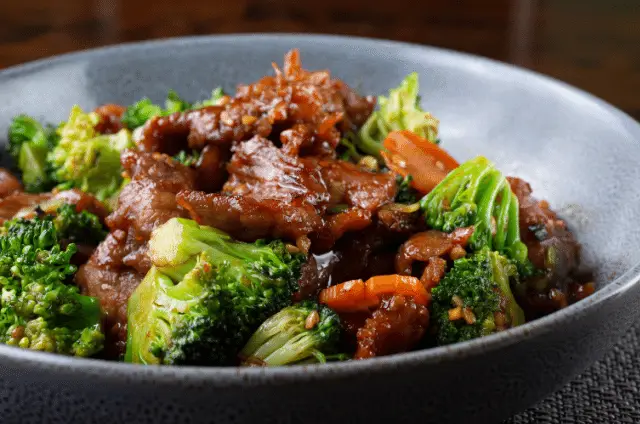
Beef and broccoli offer a similar red meat alternative for those who are looking for something that is on the healthier side and can offer a lower-MSG alternative. One key, as outlined above, is to make sure that you are asking for no or low soy sauce. This is one way that a lot more MSG will be added to your food and is something to avoid.
#7. White Rice
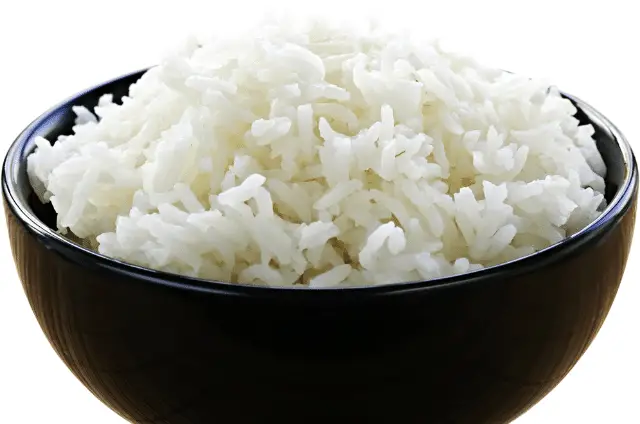
If you are looking to add rice as a side, elect to go with the white rice or brown rice option instead of fried rice. Typically, the frying process for the rice will involve the use of soy sauce, and this can increase the amount of MSG in the meal.
Why Should I Avoid MSG?
For starters, there is no conclusive proof that MSG is dangerous or that it definitively causes adverse reactions when consumed. There have been some reported issues that occur when people eat MSG in mass quantities on an empty stomach. (lick here to find out Can Chinese Food Cause Diarrhea?)
The term that has been dubbed for those who have reported these adverse reactions is MSG symptom complex. Some of the reported reactions are:
- Headache
- Sweating
- Heart Palpitations
- Nausea
- Weakness
- Sweating
Again, it should be emphasized that these have not been conclusively proven to truly be linked to MSG, but these are some of the side effects that have been reported.
What is MSG?
MSG stands for monosodium glutamate and is a common addition to the food that adds a savory taste to the dish. This can be found across a wide variety of foods, with Chinese food being one of the types of food that typically uses MSG in its preparation.
This has been classified as “generally recognized as safe” by the FDA. There are some concerns over the true safety of MSG and some of the side effects that can be associated with it.
MSG is naturally found in a wide variety of foods, as there is a great deal that is naturally filled with glutamates. Some of the foods that will naturally contain it are tomatoes and cheese. Other ingredients can also contain a great deal of MSG, including many yeast and soy extracts.
How Can I Tell if Food has MSG in it?
Perhaps you are looking to cook some food at home or hope to go out to a restaurant to enjoy some food and want to know what does and does not have MSG in it. One major benefit for the shopper is that it is required to list if MSG is an ingredient in your product. Simply reading the label will allow you to determine whether your grocery item is or is not MSG-free.
As far as the restaurant experience goes, the safest bet is to ask the waiter or chef at the restaurant. They will typically always be able to answer the question and a lot of times may be able to adjust to allow for less or no MSG at all. This is the only surefire way to guarantee that your food will not have MSG in it.
Why is MSG Used in Chinese Food?
MSG is used in food production in all kinds of areas because it is a flavor-enhancer. The primary component of MSG is glutamate, which is an amino acid found in most foods. One major benefit of MSG is that it does not require the freshest or highest-quality ingredients to maintain its taste profile. (check out Does Chinese Food Make You Sleepy?)
A great deal of Chinese Restaurants have stopped using MSG altogether amid concerns, so it is something that is worth asking your local restaurant to see if they are still utilizing it. It is much more popular among fast-food restaurants such as Chick-fil-A and Kentucky Fried Chicken.
What is the Best Replacement for MSG?
So, maybe you are looking to make some Chinese food at home and hoping to avoid MSG while doing so. There are quite a few different options that can replace the savory flavor that MSG adds to food. However, the best substitute is beef stock.
Beef stock is made from bones and will serve as a great way to enhance the flavor of any meat or vegetable dishes. This will provide a similarly meaty flavor to that which is added by MSG as beef stock can still be very heavy in glutamate.
The key flavor profile associated with MSG is umami, so it is key to find something that will align with that flavor profile.
Umami is one of the five taste profiles, but it may be the least well known. The others are classics, as they are sweet, bitter, salty, and sour. Umami is the extra flavor and has a Japanese origin, meaning “a pleasant savory taste.”
This explains why MSG has risen in popularity and is so widespread, as it is a flavor profile that is commonly associated with Chinese food and fast food as a whole.
